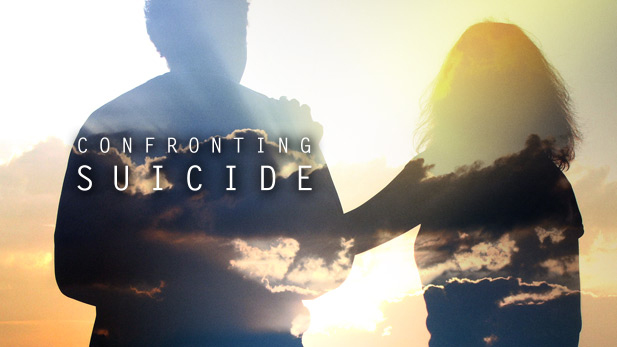
Starting Monday, Arizona Public Media will present "Confronting Suicide," a four-part radio series exploring suicide prevention efforts for teenagers, college students and older Americans.
The stories will air on NPR 89.1 Monday through Thursday, April 14-17, at 5:30 a.m. and 7:30 a.m., with a repeat of each part the same day at 4:35 p.m. All four parts along with other information will be available at news.azpm.org/confrontingsuicide.
The series, produced by AZPM reporters Fernanda Echavarri, Andrea Kelly and Gisela Telis, delves into the personal stories of three people who lost loved ones to suicide and how they cope with their grief. Mental health experts, including psychiatrists and counselors, provide their experiences and knowledge in suicide prevention.
The series emphasizes the message that suicide can be prevented if people pay attention to the moods, activities and attitudes of loved ones.
Confronting Suicide
Monday, April 14
Dozens of teenagers with suicidal thoughts and behaviors visit emergency rooms and crisis centers every week in Tucson. The conversation regarding teen suicide is one experts say can no longer be avoided. In Part 1, Fernanda Echavarri explores the brain of teenagers and the high rate of suicide among LGBT teens. A mother who lost her son to suicide shares advice for the Tucson community on how to prevent teen suicide.
Tuesday, April 15
Suicide is the second highest cause of death among college students, behind motor vehicle crashes. Though the number of suicides reported among the University of Arizona students is in the single digits every year, experts say the numbers are severely underreported. In Part 2, Andrea Kelly explores the UA's suicide prevention efforts and reports on the prevention work of a national organization that started because of a UA student's death in 1998.
Wednesday, April 16
Suicide among the elderly rarely makes headlines, yet older adults have the nation's highest suicide rates. People in their 60s are twice as likely to die by suicide as younger Americans; by their 80s, white men are five times as likely. In Part 3, Gisela Telis talks with experts, including a counselor who lost her grandfather to suicide, about the medical and cultural reasons behind this often ignored phenomenon and explores what local agencies are trying to do about it.
Thursday, April 17
Talking about suicide and suicidal tendencies is at best difficult, at worst entirely absent in many social circles, from families to schools. Yet experts say the first step toward prevention is open and honest conversation. What are the barriers to that and how can they be overcome? What are best practices that may be driving toward a cultural and conversational change about suicide? Reporters Fernanda Echavarri, Andrea Kelly and Gisela Telis discuss what they learned.

By submitting your comments, you hereby give AZPM the right to post your comments and potentially use them in any other form of media operated by this institution.